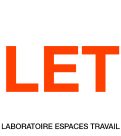Accueil > Centres de ressources > Démarches participatives > Documentation > Reflections on Four Years of Housing-Justice Support Work with Mapping (...)
Reflections on Four Years of Housing-Justice Support Work with Mapping Action Collective
"Mapping Action Collective, based in Portland, Oregon, leverages mapping and data to support housing-justice organizing, using GIS to dismantle systems of oppression, and grounding its work in the needs of the communities and movements with which it works."
"As the interwoven US crises of homelessness, evictions, displacement, and housing instability reach catastrophic levels, students, scholars, practitioners, and activists are joining the call of housing justice for all. In this article, we reflect on the work of Mapping Action Collective (MAC), a small nonprofit organization based in Portland, Oregon, that over the past four years has leveraged mapping and data to support housing-justice organizing. MAC’s work includes curating and producing relevant nontraditional or hard-to-acquire datasets owned by and in support of community-based groups ; developing decision-support software consisting of an interactive map ; producing spatial analyses that support campaign work ; and organizing educational workshops and events focused on applied critical methods and data literacy.
MAC formed out of a student club in Portland State University’s geography department, where several members became frustrated with the dominant paradigm of academic geographic information systems (GIS), which often fancies itself value-free, apolitical, or neutral, regardless of outputs or products that suggest otherwise. While critical perspectives have emerged in the domain of GIS since the 1990s, many of those criticisms are rarely considered in the standard quantitative GIS course curriculum. Few spaces are available for students to engage critically with their newfound data and mapping skills. The 2017 Resistance GIS (RGIS) conference provided a space to discuss and learn from other like-minded scholars, students, and organizers. Building on the work of critical geographers around the globe, at RGIS we asked ourselves if there was room for subversion of the status quo in GIS : can mapping and data be used to dismantle systems of oppression, rather than reinforce them ? [...]"
PLAN DE L’ARTICLE
- Asset mapping and spatial analysis supporting Portland’s unhoused community
- Collaboratively developed tools for fighting displacement and speculation
- Final thoughts
Lire l’intégralité de l’article sur le site de Métropolitiques
